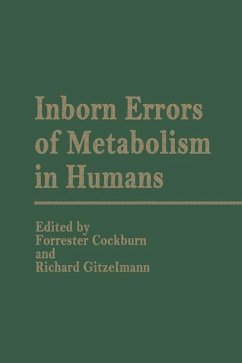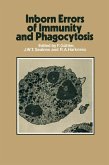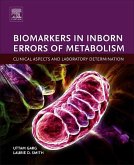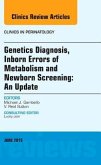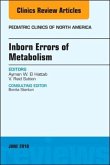Section One Pathogenic Mechanisms of Inborn Errors: Clinical Implications of Biochemical Diversity.- 1 Molecular aspects of genetic heterogeneity.- 2 Inborn errors of purine metabolism-The Milner Lecture.- 3 Vitamin-responsive inherited metabolic disorders: propionic acidaemia and methylmalonic acidaemia.- 4 Homocystinuria: clinical and biochemical heterogeneity.- 5 Hereditary defects of steroid biosynthesis.- 6 Blood-brain barrier amino-acid transport: clinical implications.- Section Two Treatment: New Aspects and Limits, Transplantation, Replacement Therapy, Genetic Engineering.- 7 Recent studies on the maturation of lysosomal enzymes.- 8 Enzyme substitution by fibroblast transplantation.- 9 Artificial cell-encapsulated enzymes and adsorbents in congenital metabolic disorders.- 10 Prospects for enzyme replacement therapy in heritable metabolic disorders.- Section Three Inborn Errors of Metabolism affecting Brain Development (Animal Models).- 11 Inborn errors of metabolism affecting brain development-Introduction.- 12 Mutations in mice affecting brain development and their correlations with human diseases.- 13 Murine mutations affecting myelination: models to study myelin diseases in the human.- 14 The effect of phenylalanine on myelin metabolism in adolescent rats.- 15 Abnormal oligodendrocyte differentiation in a mouse mutant with defect in myelination.- Section Four Consequences of Inborn Errors of Metabolism for the Individual, the Family and Society.- 16 Inborn errors of metabolism consequences of long-term treatment for the individual, as derived from observations in phenylketonuria.- 17 Social aspects of the handicapped person.- 18 Psychological and educational aspects of handicap.- 19 Repercussions of screening.- 20 Some principles in the management of inherited metabolic disease.
Hinweis: Dieser Artikel kann nur an eine deutsche Lieferadresse ausgeliefert werden.
Hinweis: Dieser Artikel kann nur an eine deutsche Lieferadresse ausgeliefert werden.

